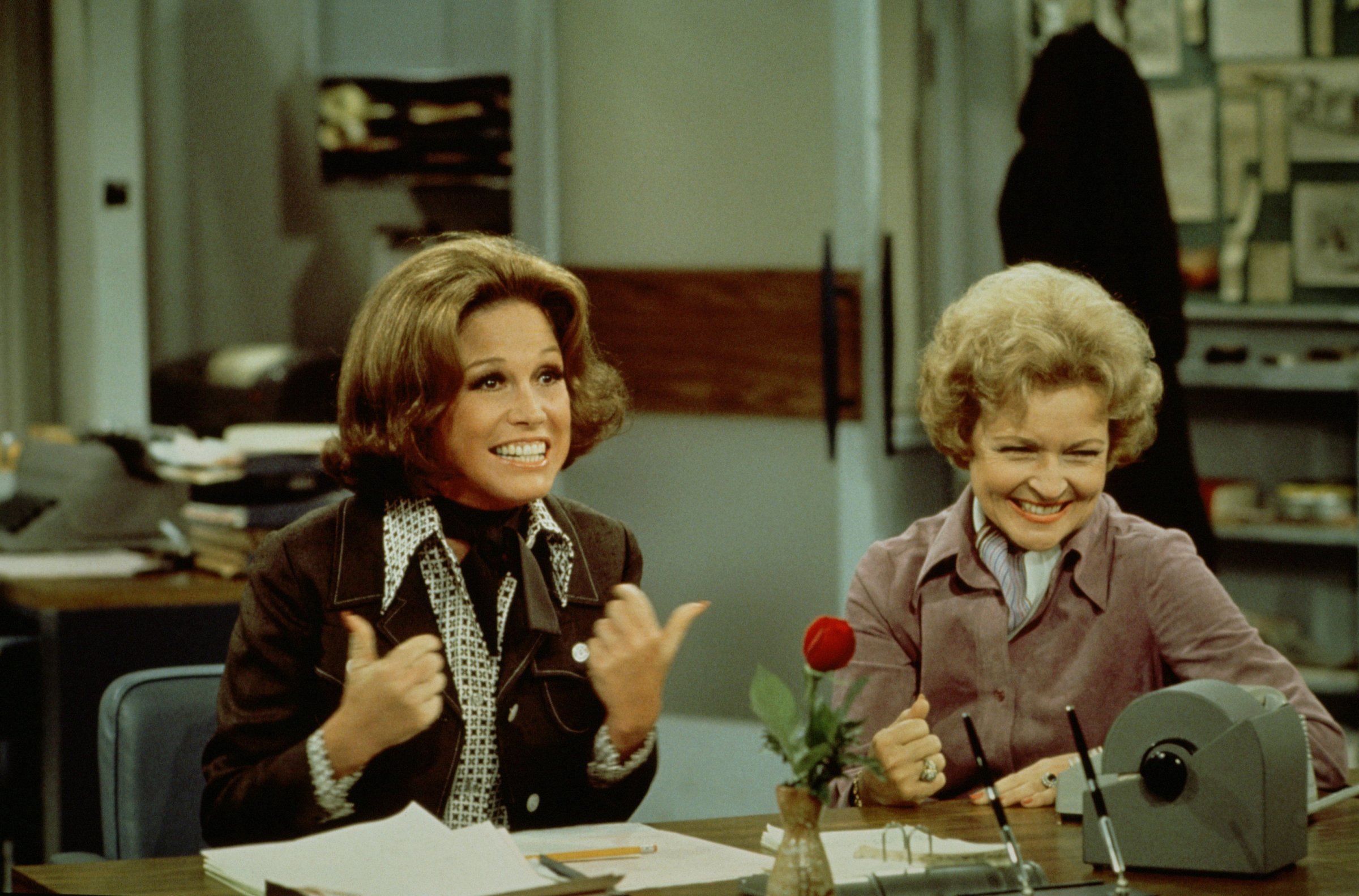
Mary Tyler Moore found grace in the everyday insanity of the office.
On The Mary Tyler Moore Show, which ran from 1970 to 1977 (and years after in syndication, which is where I discovered it), Moore was not the agent of chaos. Her character, Mary Richards, often seemed to be one of the only wholly sane people working at Minneapolis’s WJM TV station, burdened as she was with on-air talent either comically inept (Ted Knight) or ruthless (Betty White) as well as a dyspeptic boss (Ed Asner).
Moore, who died Wednesday at 80, previously starred in The Dick Van Dyke Show. On her eponymous series, she didn’t create the situations. But, with endless good cheer, she made the comedy. There was a self-awareness to Mary Tyler Moore that makes it feel much closer to today’s comedy TV than its place in history would suggest. Rather than fawning or overmatched, Moore measured up, with an easy grin and a razor wit. Her character seemed particularly conscious that the men who surrounded her were subject to insecurities and peccadilloes all their own, ones that made them apt for real humor.
Ahead of its time, too, was the show’s depiction of a woman, unmarried and happy that way, focused on the satisfactions of career. (That the career was peppered with petty incidents did not change the fact that it was a legitimate path for this woman, long before it was a legitimate path for women across TV.) Moore’s Minneapolis news producer was radical despite not being a radical; her relationship with Asner’s Lou Grant was warmly cordial even as Lou was unambiguously the boss. (A similar power dynamic, tinging facts on the ground with a sense of optimism that office culture might allow real admiration to break through, is most clearly seen in successor show 30 Rock.) And Mary and Murray (Gavin MacLeod) had something yet rarer—a platonic friendship between members of the opposite sex untouched by either sex or condescension.
In forging the seasons-long story of a woman who wanted to succeed in her field at a time when “wife” was the most readily available role, Moore’s was a sociological victory. It was also an artistic one. The theme song indicates Mary Richards could “turn the world on with her smile.” Mary was, yes, warm and charming, but her smile also held behind it ambition as often rewarded as it was frustrated. It was a performance as complex as its status as a pathbreaker deserved.
More Must-Reads from TIME
- Inside Elon Musk’s War on Washington
- Meet the 2025 Women of the Year
- The Harsh Truth About Disability Inclusion
- Why Do More Young Adults Have Cancer?
- Colman Domingo Leads With Radical Love
- How to Get Better at Doing Things Alone
- Cecily Strong on Goober the Clown
- Column: The Rise of America’s Broligarchy
Contact us at letters@time.com